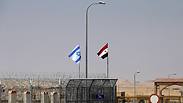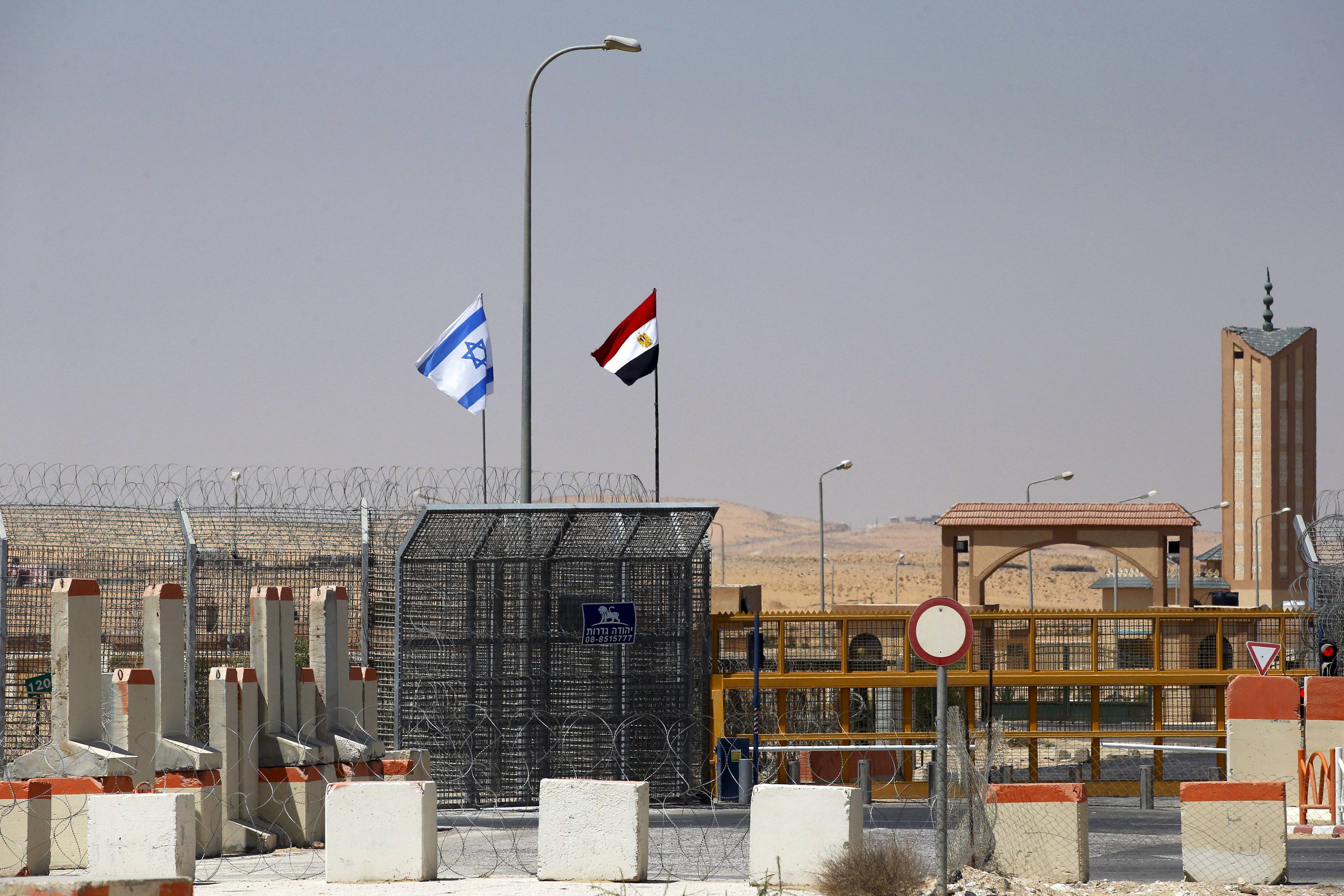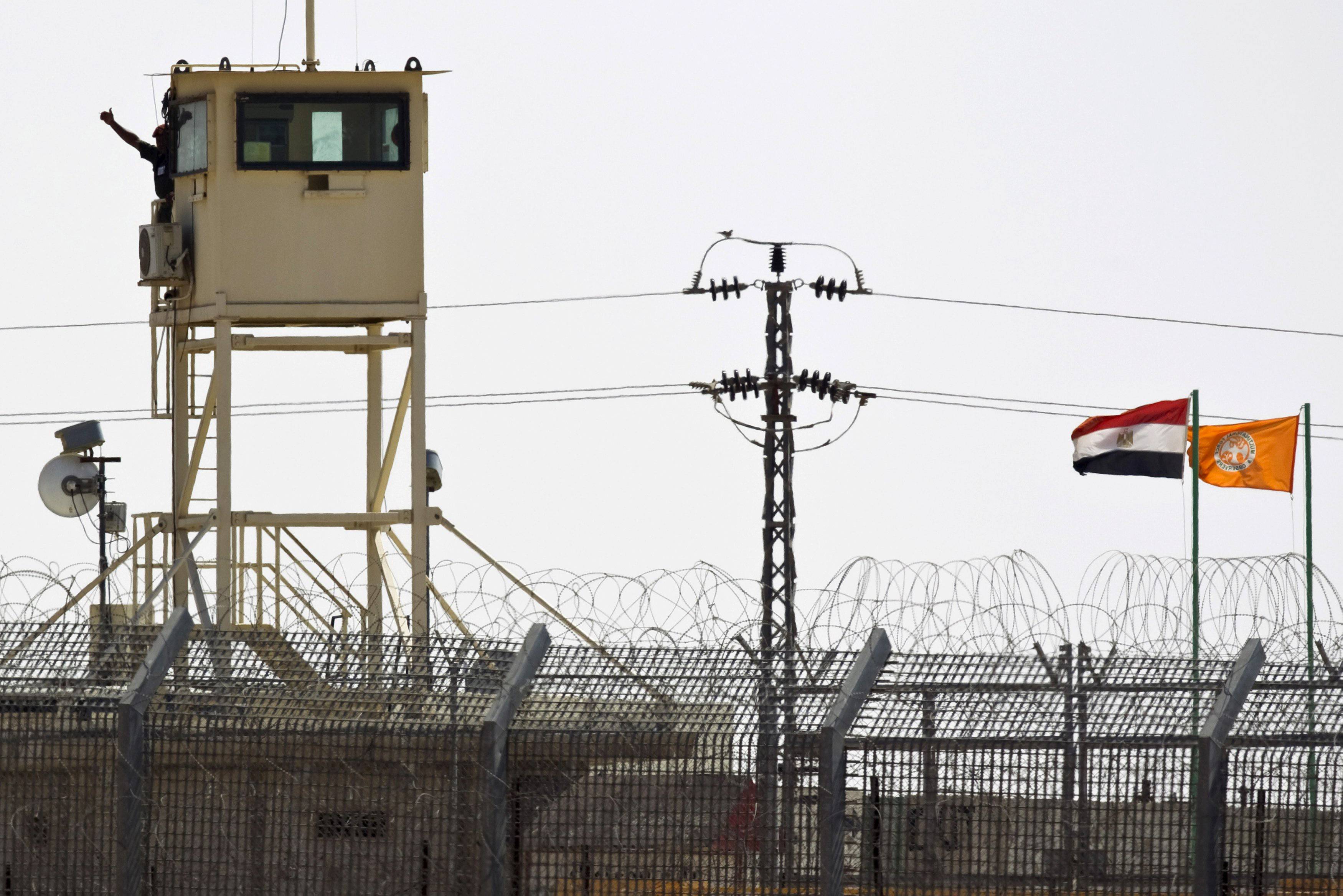
The Israel-Egypt border along the Sinai.
Reuters
3 decades in, Sinai's peacekeepers are under pressure
In northeastern areas of Sinai once strictly demilitarised, Egypt, with Israel's consent, now routinely brings in troops, tanks, fighter jets and helicopters to fight insurgents; Locals believe Israel has even lent a hand with occasional air strikes and patrols in Sinai's skies.
They half-joke that they are "smoke detectors," installed in Sinai after Egypt's 1979 peace deal with Israel as insurance against any future flare-ups. More than three war-free decades on, the US-led peacekeepers are feeling the heat.


An Islamist insurgency in the desert peninsula has claimed casualties among the Multinational Force and Observers (MFO), requiring new and often cumbersome precautions. And while participating countries do not say so publicly, there has been some behind-the-scenes debate over the MFO mandate at a period of unprecedentedly close Israeli-Egyptian security cooperation.

The Israeli and Egyptian national flags flutter at the Nitzana crossing, along Israel's border with Egypt's Sinai peninsula. (Photo: Reuters) (Reuters)
In northeastern areas of Sinai once strictly demilitarised, Egypt, with Israel's consent, now routinely brings in troops, tanks, fighter jets and helicopters to fight insurgents. Locals believe Israel has even lent a hand with occasional air strikes and patrols in Sinai's skies - something neither side confirms.
The crash of a Russian passenger jet in Sinai on Oct. 31, possibly the result of a bomb, has only heightened unease.
The MFO insists it is all the more relevant for ensuring Egyptian reinforcements are logged and agreed with the Israelis, who want no surprises on their borders.
"We will continue this important mission," the MFO director, veteran U.S. diplomat David Satterfield, told a gathering in Tel Aviv this week. "We will do everything to sustain this mission."
The MFO is welcomed by Egypt and Israel though their reasons can differ, diplomats told Reuters on condition of anonymity.
Cairo sees the MFO as part of a peaceful relationship with Israel that, while unpopular with many Egyptians, brings them $1.3 billion in annual U.S. defence aid, sweetening the foreign-enforced demilitarisation of their sovereign Sinai territory.
According to its website, the MFO has 1,682 military personnel from the United States and 11 other contributor nations, and it also employs around 400 Sinai Egyptians. While concentrated near the Israeli border, they theoretically cover an area of more than 10,000 square kilometers.
For the Israelis, the MFO offers strategic reassurance: While happy with Egyptian President Abdel Fattah al-Sisi, they quietly recall that only two years ago he toppled an elected Islamist regime hostile to the Jewish-majority state next door.
"Just because you installed a smoke detector decades ago and never had a fire, that doesn't mean you should dismantle it," one diplomat briefed on the MFO told Reuters, using a common metaphor among officials from the force, Egypt and Israel.

A member of Egypt's security forces stands on a watchtower in the northern Sinai peninsula, as seen from the Israeli side of the border. (Photo: Reuters) (Reuters)
Status quo?
"Who knows when there might be a fire? Who knows what will become of Sisi, tomorrow or a year from now?" the diplomat said, noting how confidence in Cairo had been dented by the jet crash, with Egypt-based insurgents among the possible suspects.Egyptian and Israeli contentment with the MFO status quo has meant both sides are reluctant to approve changes that the force and some of its contributors have proposed to reduce budgets or risk to personnel, several diplomats said.
While ramped up by the wounding of four American and two Fijian peacekeepers by a roadside bomb in September, such discussions were already at a high pitch after the New York Times wrote in an editorial on August 11 that it was "time to reassess" the MFO given its "increasingly obsolete" mission.
A diplomat from an MFO contributor nation said the force sought to reassign non-essential staff away from posts more exposed to insurgent attack and to replace some far-flung manned observation points with remote surveillance technologies.
This would represent a major overhaul of the MFO, which is mandated to use kit no more sophisticated than binoculars and to carry out face-to-face counts of Egyptian troops and materiel.
"We need to recognise that this mission was first conceived in a more permissive environment," the diplomat said, referring to the early years when the Egypt-Israel border was literally a line in the sand, Sinai's sole covert activity was smuggling and MFO staff enjoyed leisurely excursions to Red Sea resorts.
For the time being, MFO personnel have switched from regular cars to armour-plated SUVs and travel in convoys rather than making single-vehicle visits to inspection sites. When they spot a suspected roadside bomb, they stop and call Egyptian sappers.
The diplomat from a contributor nation predicted that, if consensus on an MFO review is reached, the number of peacekeepers "probably won't change, though their composition and distribution might".
"Both countries (Egypt and Israel) are hesitant about any signal or interpretation that might look like retreat or a drawdown or a reduction in commitment," the diplomat said. "I can understand the concerns, but once we have spoken - and we are doing that - they will be reassured."










